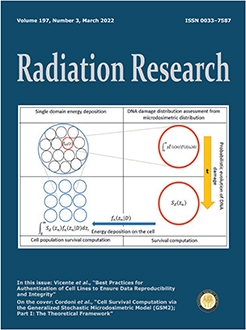Metaphase-based cytogenetic methods based on scoring of chromosome aberrations for the estimation of the radiation dose received provide a powerful approach for evaluating the associated risk upon radiation exposure and form the bulk of our current knowledge of radiation-induced chromosome damages. They mainly rely on inducing quiescent peripheral lymphocytes into proliferation and blocking them at metaphases to quantify the damages at the chromosome level. However, human organs and tissues demonstrate various sensitivity towards radiation and within them, self-proliferating progenitor/stem cells are believed to be the most sensitive populations. The radiation-induced chromosome aberrations in these cells remain largely unknown, especially in the context of an intact living organism. Zebrafish is an ideal animal model for research into this aspect due to their small size and the large quantities of progenitor cells present during the embryonic stages. In this study, we employ a novel metaphase-based cytogenetic approach on zebrafish embryos and demonstrate that chromosome-type and chromatid-type aberrations could be identified in progenitor cells at different cell-cycle stages at the point of radiation exposure. Our work positions zebrafish at the forefront as a useful animal model for studying radiation-induced chromosome structural changes in vivo.
How to translate text using browser tools
3 December 2021
Metaphase-Based Cytogenetic Approach Identifies Radiation-Induced Chromosome and Chromatid Aberrations in Zebrafish Embryos
Halida Thanveer Asana Marican,
Hongyuan Shen
ACCESS THE FULL ARTICLE

Radiation Research
Vol. 197 • No. 3
March 2022
Vol. 197 • No. 3
March 2022




